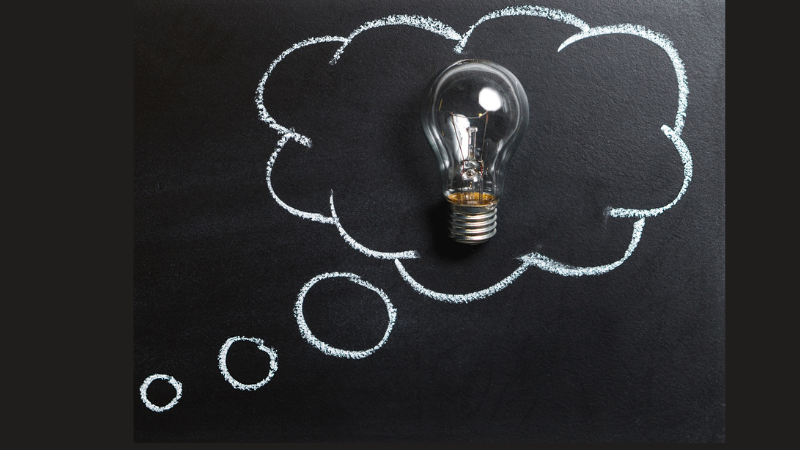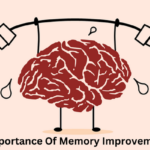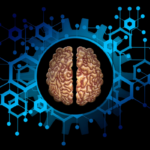How To Improve Memory Recall
Improve Memory Recall: Learn 10 actionable steps to boost memory, from quality sleep to mental exercises. Enhance cognitive skills for a sharper mind.

Introduction
Welcome to a journey toward enhancing your memory recall! In our fast-paced lives, the ability to remember crucial information, from tasks and appointments to people’s names and complex concepts, is invaluable. Yet, many of us struggle with memory lapses and forgetfulness.
This article is your guide to understanding memory recall, its significance, and, most importantly, the ten actionable steps you can take to sharpen your memory recall skills. Whether you’re a student looking to ace exams, a professional aiming to excel in your career, or simply someone who wants to remember more in daily life, these steps are universally applicable.
Brief explanation of memory recall
Memory recall is the process of retrieving stored information from your brain when you need it. Think of it as your mental filing cabinet, where you can access specific files (memories) at will. It’s an essential function of the human brain that impacts almost everything we do, from learning and problem-solving to personal relationships.
The importance of memory recall in daily life
Imagine the frustration of forgetting an important meeting, blanking on a friend’s name, or drawing a blank during an exam. Memory recall isn’t just about impressing others; it’s about improving your quality of life. It enables you to make informed decisions, build strong relationships, and excel in your personal and professional pursuits.
The purpose of the article
In this article, we’ll delve into the science of memory recall, exploring how it works and what factors influence it. We’ll then outline ten easy steps that you can incorporate into your daily routine to enhance your memory recall abilities. Additionally, we’ll discuss specific memory challenges and provide solutions, along with technology and tools that can aid in memory improvement.
So, if you’re ready to unlock the full potential of your memory recall, let’s embark on this journey together! In the following sections, we’ll equip you with the knowledge and strategies you need to boost your memory recall and make forgetfulness a thing of the past.
Understanding Memory Recall
Memory recall is a fascinating cognitive process that enables us to bring forth information and experiences from our past. It plays a pivotal role in our everyday lives, impacting everything from learning new skills to solving complex problems. In this section, we’ll delve into the intricacies of memory recall, shedding light on what it is, how it works, and why it’s so crucial for our cognitive functioning.
What is Memory Recall?
Definition and Explanation:
Memory recall, often referred to as simply “recall,” is the ability of our brains to retrieve information and experiences stored in our memory when needed. It’s like pulling a file from the archives of your brain, allowing you to access past events, facts, or knowledge. This process is essential for tasks as basic as remembering your way home or as complex as reciting historical events.
Memory recall doesn’t happen by chance; it’s a structured process that involves several interconnected components of your brain. It’s the key to using knowledge you’ve acquired in the past to navigate the present and plan for the future.
How Does Memory Recall Work?
The Role of the Brain:
Memory recall relies on various regions of the brain working in harmony. The hippocampus, a small, seahorse-shaped structure deep within the brain, plays a pivotal role in consolidating and retrieving memories. It acts as the brain’s librarian, organizing and cataloging memories for easy retrieval. When you try to recall something, the hippocampus assists in searching through your memory banks to find the relevant information.
Types of Memory:
Memory isn’t a one-size-fits-all concept; there are different types, each with its own characteristics:
- Short-Term Memory: Short term memory is like your mental notepad, where you temporarily hold information needed for immediate tasks. It has a limited capacity and is highly susceptible to distractions.
- Long-Term Memory: Long term memory is where your significant life experiences, knowledge, and skills reside. It has an almost limitless capacity and can store information for years or even a lifetime.
- Sensory Memory: Sensory memory captures brief impressions of sensory information like sights, sounds, and smells. It acts as a temporary buffer, holding onto sensations for a fraction of a second before they’re processed or forgotten.
Why is Memory Recall Important?
Memory recall is a fundamental cognitive function, and its importance can’t be overstated:
Impact on Learning and Problem-Solving:
- Learning: Memory recall is at the core of the learning process. When you absorb new information, your brain stores it in memory, and your ability to recall it later is critical for applying that knowledge effectively.
- Problem-Solving: Recall is essential for solving problems, as it allows you to draw upon past experiences and knowledge to find solutions. Whether you’re troubleshooting a technical issue or making strategic decisions, your ability to recall relevant information is key.
Enhancing Cognitive Abilities:
Efficient memory recall is associated with higher cognitive abilities. It’s linked to improved analytical thinking, creativity, and the capacity to make informed decisions. In short, memory recall contributes significantly to our overall mental agility and adaptability.
In the following sections, we’ll explore the science behind memory recall, including how memories are formed and the neurological factors that influence recall. We’ll also discuss how age can affect memory recall and strategies to enhance it at different stages of life. So, let’s dive deeper into the world of memory and uncover ways to supercharge your memory recall abilities.
The Science of Memory Recall
Memory recall is a fascinating and intricate process that plays a crucial role in our daily lives. To truly understand how to improve memory recall, it’s essential to delve into the science behind it. In this section, we’ll explore the formation of memories, the neurological factors that affect recall, and how age can impact your ability to remember.

Let’s unlock the secrets of your brain’s memory recall system.
Memory Formation Process
1. Encoding
Memory recall starts with the encoding of information. This is the process where your brain takes in new information and converts it into a form that can be stored. Think of encoding as the initial data input into your mental filing cabinet. The more effectively you encode information, the easier it is to recall later.
2. Storage
Once information is encoded, it moves into the storage phase. Memories can be stored in different parts of the brain, with the hippocampus being a key player in long-term memory storage. The strength of a memory and how well it’s organized during storage will impact how easily you can retrieve it later.
3. Retrieval (Focus on Recall)
The retrieval process is where memory recall comes into play. It involves accessing and pulling out stored information when you need it. Recall can be influenced by various factors, including the strength of the memory, the context in which it was encoded, and the cues present when trying to retrieve it.
Neurological Factors Affecting Recall
1. Hippocampus and Memory Consolidation
The hippocampus, a seahorse-shaped structure deep within your brain, plays a pivotal role in memory consolidation. This process involves transferring information from short-term memory to long-term memory. Damage to the hippocampus can impair your ability to form new memories or recall existing ones.
2. Role of Neurotransmitters
Neurotransmitters are chemicals that transmit signals between nerve cells in the brain. Some neurotransmitters, like acetylcholine, are particularly important for memory function. They help in forming and strengthening connections between neurons, which is essential for memory recall.
How Age Affects Memory Recall
1. Memory Decline and Aging
As we age, it’s common to experience changes in memory recall. Short-term memory may decline, making it harder to remember recent events or details. This is often due to changes in brain structure and function, as well as decreased production of certain neurotransmitters.
2. Strategies for Memory Enhancement at Different Life Stages
While age-related memory changes are natural, there are strategies you can employ to mitigate their impact. These strategies can vary depending on your life stage, from childhood to old age. For example, children may benefit from memory games, while older adults may find value in staying mentally and socially active.
Understanding the science of memory recall is the first step toward improving it. In the next section, we’ll delve into practical steps you can take to enhance your memory recall abilities and keep your mind sharp throughout your life.
10 Steps to Improve Memory Recall

In this section, we’ll delve into ten practical and easy-to-follow steps that can significantly boost your memory recall abilities. Whether you’re a student aiming to excel in exams, a professional looking to enhance your cognitive performance, or simply someone who wants to remember the important details of daily life, these steps are your key to success.
Step 1: Get Adequate Sleep
Introduction: Sleep plays a pivotal role in memory recall. When you’re sleep-deprived, your brain struggles to consolidate and organize memories. This can lead to forgetfulness and decreased cognitive function.
Actionable Tips:
- Aim for 7-9 hours of quality sleep per night.
- Create a sleep-conducive environment by keeping your bedroom dark, quiet, and cool.
- Avoid caffeine and electronics before bedtime.
Step 2: Stay Physically Active
Introduction: Exercise isn’t just great for your body; it’s also a powerful tool for enhancing memory recall. Physical activity improves blood flow to the brain and promotes the growth of new brain cells.
Actionable Tips:
- Engage in regular aerobic exercises like walking, jogging, or swimming.
- Incorporate strength training and flexibility exercises into your routine.
- Aim for at least 150 minutes of moderate-intensity exercise per week.
Step 3: Manage Stress
Introduction: Chronic stress can impair memory recall by affecting the brain’s structure and function. Learning to manage stress is essential for optimal cognitive performance.
Actionable Tips:
- Practice relaxation techniques such as deep breathing, meditation, or yoga.
- Set realistic goals and prioritize tasks to reduce stress.
- Seek professional help if stress becomes overwhelming.
Step 4: Eat Brain-Boosting Foods
Introduction: Your diet plays a significant role in memory function. Certain nutrients support brain health and enhance memory recall.
Actionable Tips:
- Include foods rich in antioxidants, such as berries, in your diet.
- Consume omega-3 fatty acids found in fish, flaxseeds, and walnuts.
- Opt for a balanced diet that includes fruits, vegetables, whole grains, and lean proteins.
Step 5: Stay Mentally Active
Introduction: Just like physical exercise, mental workouts are essential for maintaining a sharp memory. Challenging your brain keeps it agile and improves recall.
Actionable Tips:
- Engage in activities that require problem-solving, such as puzzles or crosswords.
- Learn a new skill or hobby.
- Stay curious and read regularly to expand your knowledge.
Step 6: Stay Socially Engaged
Introduction: Social interaction stimulates the brain and helps improve memory recall. Engaging with others can also provide emotional support, reducing stress.
Actionable Tips:
- Make time for friends and family.
- Join clubs or groups with shared interests.
- Volunteer in your community to foster social connections.
Step 7: Practice Mindfulness and Meditation
Introduction: Mindfulness exercises and meditation can enhance memory recall by promoting relaxation and reducing distractions.
Actionable Tips:
- Dedicate a few minutes each day to mindfulness meditation.
- Focus on your breath and be present in the moment.
- Use mindfulness techniques to manage stress and improve concentration.
Step 8: Use Mnemonics and Memory Techniques
Introduction: Mnemonic devices and memory techniques are powerful tools for remembering information. They provide mental frameworks to organize and retrieve data more effectively.
Actionable Tips:
- Learn mnemonic devices like acronyms and visualization techniques.
- Practice memory exercises regularly to reinforce these skills.
Step 9: Stay Organized
Introduction: Organization helps reduce cognitive load and frees up mental resources for memory recall. When your life is clutter-free, you can better focus on remembering what’s important.
Actionable Tips:
- Use calendars, to-do lists, and digital tools to manage your schedule and tasks.
- Keep your physical and digital spaces organized and clutter-free.
- Develop a routine to streamline daily activities.
Step 10: Repeat and Review
Introduction: Repetition is a key element of memory recall. Regularly reviewing information helps reinforce neural connections and improve recall.
Actionable Tips:
- Create a study or review schedule for important information.
- Use flashcards or quizzes to test your knowledge regularly.
- Space out your reviews over time for better retention.
By incorporating these ten steps into your daily life, you’ll be well on your way to improving your memory recall abilities. Whether you’re a student, a professional, or someone simply looking to enhance cognitive function, these strategies are essential for remembering the important details and experiences that shape your life.
Memory Recall Improvement Tips for Specific Situations
Memory recall is not just a general skill; it’s also essential in specific situations like studying for exams, remembering names and faces, and recalling information in meetings or presentations. In this section, we’ll delve into strategies tailored for these scenarios to help you boost your memory recall abilities.
Studying for Exams
- Techniques for Better Retention During Study Sessions
When it comes to preparing for exams, efficient studying can make a significant difference in your ability to recall information. Here are some techniques to enhance your memory recall while studying:
- Spaced Repetition: Instead of cramming all at once, space out your study sessions over time. Reviewing material at intervals helps reinforce memory.
- Active Learning: Engage with the material actively. Summarize, ask questions, and discuss it with peers or instructors.
- Use Visual Aids: Visual representations like mind maps, diagrams, and charts can simplify complex information and make it easier to remember.
- Teach Someone Else: Teaching someone else what you’ve learned forces you to recall and explain concepts, solidifying your understanding.
- Practice with Mock Tests: Simulating exam conditions with practice tests can reduce anxiety and improve recall during the actual test.
- Preparing a Study Schedule
Organizing your study time effectively can enhance memory retention. Consider these tips when creating a study schedule:
- Set Realistic Goals: Break your study material into manageable chunks and allocate specific time slots for each topic.
- Prioritize Difficult Topics: Focus on challenging subjects when your concentration is at its peak, usually during the morning.
- Include Breaks: Short breaks between study sessions can help refresh your mind and prevent burnout.
- Consistency is Key: Stick to your schedule consistently to establish a routine that optimizes memory recall.
Remembering Names and Faces
- Tricks for Remembering People’s Names
Forgetting names can be embarrassing and socially awkward, but there are techniques to help you remember them:
- Repeat Names Aloud: When introduced to someone, use their name in the conversation several times. It reinforces the memory.
- Create Associations: Connect a person’s name with a distinctive feature, profession, or hobby. For example, if you meet a “Lisa” who loves to paint, associate her name with “Lisa the Artist.”
- Use Mnemonics: Mnemonic devices like rhymes or alliteration can make names more memorable. For instance, “Mike the Mechanic.”
- Facial Recognition Strategies
Remembering faces is as important as names. Try these strategies to improve your facial recognition skills:
- Focus on Distinctive Features: Pay attention to unique facial features, such as distinctive eyebrows, glasses, or facial hair.
- Visualize the Name: When you hear a name, try to create a mental image that links the name to the person’s face.
- Practice Visualization: Spend a few seconds visualizing a person’s face and associating it with their name after meeting them.
Recalling Information in Meetings or Presentations
- Note-Taking Techniques
During meetings or presentations, effective note-taking can help you recall critical information later:
- Use Keywords: Jot down keywords and phrases rather than trying to write everything verbatim.
- Organize Your Notes: Use bullet points, headings, and subheadings to structure your notes logically.
- Review and Summarize: After the meeting, take a moment to review and summarize your notes to reinforce the memory.
- Active Listening Strategies
Active listening is crucial for retaining information in discussions and presentations:
- Maintain Eye Contact: Keep eye contact with the speaker to stay engaged and attentive.
- Ask Questions: If something is unclear, don’t hesitate to ask questions or seek clarification.
- Paraphrase: Periodically summarize what you’ve heard in your own words to ensure you’ve understood correctly.
By implementing these memory recall strategies in specific situations, you can improve your ability to remember names, faces, and important information from your studies or meetings. Tailoring your approach to the context at hand can make a significant difference in your memory performance.
Common Memory Recall Challenges and Solutions

Forgetfulness
- Causes of Forgetfulness
Forgetfulness can strike at any age, and it’s essential to understand some of the common causes behind it:
a. Stress: High stress levels can lead to forgetfulness, as it can impair your ability to concentrate and form memories effectively.
b. Lack of Sleep: Sleep is crucial for memory consolidation. A lack of sleep can result in difficulties with recall.
c. Information Overload: In our digital age, we’re bombarded with information daily. This overload can make it challenging to remember specific details.
d. Aging: As we age, our brains undergo changes that can affect memory recall. This is a natural part of the aging process.
- Quick Memory Recovery Methods
When you’re faced with a moment of forgetfulness, there are some quick and effective strategies you can employ to help you recall information:
a. Relax and Stay Calm: Stress can exacerbate memory lapses. Take a deep breath, relax, and try to remain calm when you can’t remember something immediately.
b. Visualize: Try to visualize the information you’re trying to recall. Create a mental image associated with the memory to trigger recall.
c. Use Retrieval Cues: Think about related words or concepts that might jog your memory. Sometimes, a single word or idea can lead you to the information you need.
d. Revisit the Context: Think about where and when you first encountered the information. Revisiting the context can help bring the memory back.
B. Memory Lapses as You Age
- Coping Strategies for Age-Related Memory Decline
Age-related memory decline is a common concern, but there are strategies to help cope with it:
a. Maintain an Active Lifestyle: Regular physical activity has been shown to support brain health and may slow down age-related memory decline.
b. Mental Stimulation: Engage in activities that challenge your mind, such as puzzles, crosswords, or learning a new skill. This can help keep your cognitive abilities sharp.
c. Stay Socially Connected: Maintaining social connections can help prevent feelings of isolation, which can contribute to memory decline.
d. Eat a Brain-Healthy Diet: Incorporate foods rich in antioxidants, omega-3 fatty acids, and other nutrients that support brain health into your diet.
e. Get Regular Check-Ups: Regular health check-ups can identify and address medical conditions that may be affecting your memory.
- When to Seek Professional Help
It’s essential to differentiate between normal age-related memory changes and more serious memory problems that may require professional intervention:
a. Frequent Memory Loss: If you find that you’re frequently forgetting important information or experiences, it’s a good idea to consult a healthcare professional.
b. Disorientation: If you become disoriented or lost in familiar places, it may be a sign of a more severe issue.
c. Personality Changes: Sudden and unexplained changes in mood, behavior, or personality should be addressed promptly.
d. Difficulty with Basic Tasks: Struggling with everyday tasks like managing finances or personal hygiene may indicate a more significant problem.
e. Family History: If you have a family history of conditions like Alzheimer’s disease, you should be vigilant about any memory changes and discuss them with a healthcare provider.
In this section, we’ve explored common memory recall challenges, their causes, and practical solutions for addressing them. Whether it’s dealing with forgetfulness in the short term or navigating age-related memory changes, understanding the causes and knowing when to seek professional help is essential for maintaining optimal cognitive function.
Technologies and Apps to Boost Memory Recall

In today’s digital age, technology offers a wealth of resources to help us improve memory recall and cognitive functions. From memory-enhancing apps to wearable devices and brain training programs, here’s a look at some of the tools and technologies that can assist you on your journey to better memory recall:
Memory-Enhancing Apps and Games
- Lumosity: Lumosity is a popular brain training app that offers a variety of games designed to improve memory, attention, and problem-solving skills. It provides personalized training programs based on your goals and progress.
- Peak: Peak offers a range of brain games and puzzles to challenge your memory and cognitive abilities. It tracks your performance over time and adapts exercises to your skill level.
- CogniFit: CogniFit offers scientifically validated brain training games that target memory, concentration, and other cognitive functions. It provides detailed progress reports and recommendations for improvement.
- Elevate: Elevate is an app that focuses on language skills, math, and writing, but also includes memory-boosting exercises. It tailors workouts to your individual strengths and weaknesses.
- Mnemonic Devices Apps: There are various apps that specialize in teaching and practicing mnemonic techniques like the Method of Loci, Acronyms, and the Memory Palace method.
Digital Tools for Organization and Scheduling
- Evernote: Evernote is a versatile note-taking app that can help you stay organized by allowing you to capture ideas, create to-do lists, and save important information. Use it to store and retrieve essential details effortlessly.
- Google Calendar: Google Calendar is a powerful tool for scheduling and time management. Set reminders, create events, and receive notifications to help you remember appointments and important dates.
- To-Do List Apps: Apps like Todoist, Wunderlist (now part of Microsoft To Do), and Any.do help you create task lists, set deadlines, and prioritize your daily activities, reducing the mental burden of remembering everything.
- Digital Notebooks: Apps like Microsoft OneNote and Notion let you organize and categorize your notes, making it easier to find and reference information when you need it.
Wearable Devices and Brain Training Programs
- Wearable Brain Sensors: Some wearable devices, like EEG headsets, can monitor brain activity and provide real-time feedback. These devices are often used in neurofeedback therapy to improve cognitive functions.
- Brain-Training Software: Programs like Posit Science and Cogmed offer structured brain training exercises that focus on memory improvement. These can be particularly useful for individuals looking for intensive training.
- Biofeedback Devices: Biofeedback devices, such as heart rate variability (HRV) monitors, can help manage stress and anxiety, indirectly benefiting memory recall by reducing cognitive interference from stress.
- Virtual Reality (VR) Training: VR applications are emerging in the field of memory improvement. They create immersive environments for memory exercises and spatial memory challenges.
Remember that while these technologies and apps can be valuable tools for memory enhancement, they work best when used in conjunction with other memory-boosting strategies outlined in this article. Combining these tools with a healthy lifestyle, proper sleep, and mental stimulation will provide the most significant benefits for your memory recall. Explore these options and find the ones that work best for your unique needs and preferences.
Advanced Memory Enhancement Techniques
In this section, we’ll explore advanced memory enhancement techniques that can take your recall abilities to the next level. These strategies go beyond the basics and delve into the intricacies of memory training and optimization.
Memory Palace Technique
The Memory Palace technique, also known as the Method of Loci, is a powerful mnemonic device that has been used for centuries to memorize vast amounts of information. We’ll explain how to create your own memory palace and use it effectively for recalling complex details.
Visualization Techniques
Visualization is a key component of memory enhancement. We’ll dive into advanced visualization techniques that can help you vividly remember intricate information, from numbers and data to historical facts and speeches.
Dual N-Back Training
For those looking to challenge their memory and cognitive abilities, we’ll introduce the Dual N-Back training method, a scientifically proven exercise that can improve working memory and overall brain function.
By incorporating these advanced memory enhancement techniques into your repertoire, you’ll be equipped with a diverse set of tools to tackle even the most demanding memory recall challenges.
By implementing these optimizations and maintaining a natural, reader-friendly tone, your content should be well-prepared to rank for the target keyword and provide valuable information to your audience.
Improve Memory Recall Conclusion
Congratulations on reaching the end of our journey to boost memory recall! Throughout this article, we’ve explored the fascinating world of memory, how it works, and, most importantly, how you can enhance your memory recall abilities. Before we part ways, let’s briefly recap what we’ve learned and why this knowledge is so valuable.
Memory Recall: A Vital Skill
Memory recall is not just a cognitive function; it’s the cornerstone of our daily lives. Whether you’re studying for an exam, recalling important information during meetings, or simply remembering names and faces, your memory recall skills play a crucial role in your success and well-being. The good news is that memory improvement is within your reach, and the steps we’ve discussed can significantly boost your recall abilities.
The 10 Steps to Better Memory Recall
We’ve delved into ten practical steps that can make a world of difference in your memory recall:
- Get Adequate Sleep: Ensure your brain is well-rested for optimal memory functioning.
- Stay Physically Active: Regular exercise promotes better cognitive health.
- Manage Stress: Reduce stress levels to prevent memory interference.
- Eat Brain-Boosting Foods: Fuel your brain with nutrients that support memory.
- Stay Mentally Active: Challenge your brain with puzzles, learning, and new experiences.
- Stay Socially Engaged: Interactions with others stimulate your memory.
- Practice Mindfulness and Meditation: Cultivate a calm mind for improved recall.
- Use Mnemonics and Memory Techniques: Employ effective memory aids.
- Stay Organized: Organizational skills help you retrieve information efficiently.
- Repeat and Review: Reinforce memories through repetition and review.
Memory Recall in Real-Life Situations
We’ve also provided tips tailored to specific scenarios, such as studying for exams, remembering names and faces, and recalling information in meetings or presentations. These practical strategies can help you excel in various aspects of your personal and professional life.
Challenges and Solutions
We addressed common memory recall challenges, such as forgetfulness and age-related memory lapses, offering quick solutions and advice on when to seek professional help.
Leveraging Technology
In today’s digital age, we explored how technology can aid memory improvement. From memory-enhancing apps to organization tools and wearable devices, there are numerous resources available to support your journey to better memory recall.
The Journey Continues
Remember that enhancing memory recall is a continuous journey. It requires patience, dedication, and a commitment to applying the strategies we’ve discussed. Small, consistent efforts can yield significant results over time.
In closing, always remember that improving memory recall is not just about enhancing your cognitive abilities; it’s about enriching your life experiences. With a better memory, you’ll find it easier to learn, connect with others, and accomplish your goals. So, why wait? Start implementing these strategies today and embark on a journey to a sharper, more confident, and more capable you!
Thank you for joining us on this memory-boosting adventure, and we wish you all the best on your path to improved memory recall. Your brain is a remarkable tool, and by nurturing it, you’ll unlock new levels of potential in every aspect of your life.
Additional Resources
1. Books on Memory Improvement:
- Moonwalking with Einstein: The Art and Science of Remembering Everything by Joshua Foer
- Make It Stick: The Science of Successful Learning by Peter C. Brown, Henry L. Roediger III, and Mark A. McDaniel
2. Memory-Enhancing Apps:
- Anki: A flashcard app with spaced repetition.
- Memrise: An interactive language learning app.
- Peak: A brain training app.
3. Online Courses and Workshops:
- Coursera: Offers various courses related to memory improvement, cognitive psychology, and learning strategies.
- edX: Provides access to high-quality courses, including those focused on memory enhancement.
4. Memory Improvement Websites:
- Lumosity: Offers informative articles and exercises for memory improvement.
- Memory Improvement Tips: A website dedicated to memory enhancement with articles, exercises, and resources.
5. Memory Training Workshops and Seminars:
- Check local community centers, universities, and educational organizations for workshops or seminars on memory improvement.
6. Cognitive Behavioral Therapy (CBT) and Mindfulness:
- Consider seeking CBT therapy or mindfulness programs to manage stress and anxiety.
7. Memory Supplements and Nootropics:
- Consult with a healthcare professional before considering any supplements. Examples include Ginkgo Biloba and Omega-3 Fatty Acids.
8. Memory and Brain-Training Games:
- Try games like Sudoku, Crossword Puzzles, and various brain-training apps available on app stores.
9. Memory Associations and Clubs:
- Look for local memory associations or clubs to connect with like-minded individuals.
10. Professional Memory Training Services:
- Research and choose a reputable memory trainer if you decide to go this route.
Feel free to explore these resources to enhance your memory recall abilities, and tailor your approach to what suits you best on your journey to improved memory.
Frequently Asked Questions (FAQ’s)
Here are four frequently asked questions (FAQs) about improving memory recall, along with detailed answers:
Q1: What are the main factors that affect memory recall?
A1: Memory recall can be influenced by various factors, including:
- Stress: High stress levels can hinder memory recall by disrupting your ability to concentrate and focus on retrieving information.
- Lack of Sleep: Inadequate sleep impairs memory consolidation, making it challenging to recall information.
- Age: As we age, our memory may decline due to natural changes in brain function and structure.
- Health Conditions: Certain medical conditions, such as Alzheimer’s disease or other forms of dementia, can significantly impact memory recall.
- Nutrition: A diet rich in brain-boosting nutrients like antioxidants and omega-3 fatty acids can enhance memory.
- Physical Activity: Regular exercise promotes blood flow to the brain and supports memory function.
- Mental Stimulation: Engaging in mentally challenging activities and learning new skills can help maintain and improve memory recall.
Q2: Can memory recall be improved through training and exercises?
A2: Yes, memory recall can be enhanced through various training and exercises. Some effective techniques include:
- Mnemonic Devices: Techniques like acronyms, visualization, and the Memory Palace method can help you remember information more effectively.
- Memory Games: Games like Sudoku, crossword puzzles, and brain-training apps can sharpen your memory and cognitive abilities.
- Mindfulness and Meditation: Practicing mindfulness exercises and meditation can reduce stress and improve focus, indirectly benefiting memory recall.
- Regular Review: Revisiting and reviewing information periodically helps reinforce neural connections, making it easier to recall.
- Spaced Repetition: This technique involves spacing out study sessions over time to improve long-term retention.
- Memory Associations: Creating associations between new information and existing knowledge can aid recall.
Q3: Are there specific dietary recommendations to enhance memory recall?
A3: Yes, your diet can play a significant role in memory enhancement. Consider the following dietary recommendations:
- Antioxidant-Rich Foods: Berries, leafy greens, and colorful fruits and vegetables are high in antioxidants, which protect the brain from oxidative stress.
- Omega-3 Fatty Acids: Fish, flaxseeds, and walnuts contain omega-3 fatty acids that support brain health and memory function.
- Balanced Diet: A diet rich in whole grains, lean proteins, and healthy fats provides essential nutrients for optimal brain function.
- Hydration: Staying well-hydrated is crucial, as even mild dehydration can affect cognitive performance and memory.
- Limit Sugar and Processed Foods: High sugar intake and processed foods can lead to inflammation and impair memory.
- Moderate Caffeine: While caffeine can enhance alertness, excessive consumption may interfere with sleep and affect memory.
Q4: Can I improve memory recall as I age, or is it a natural decline?
A4: Memory decline with age is natural, but there are strategies to mitigate its impact and maintain or even improve memory recall:
- Stay Mentally Active: Engaging in mentally stimulating activities like puzzles, learning new skills, and reading can help keep your brain agile.
- Stay Socially Engaged: Maintaining social connections and engaging in social activities can stimulate your brain and reduce feelings of isolation.
- Physical Exercise: Regular physical activity improves blood flow to the brain and supports cognitive function.
- Healthy Diet: Eating a balanced diet rich in brain-boosting nutrients can support memory recall.
- Mental Healthcare: Seek professional help if you experience significant memory problems or cognitive decline, as early intervention can be beneficial.
While some memory changes are a part of aging, these strategies can help you optimize your memory recall abilities and enjoy a fulfilling and mentally active life as you grow older.



